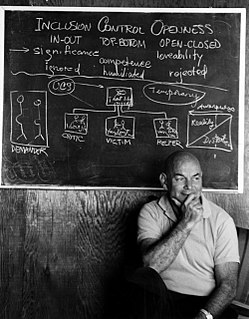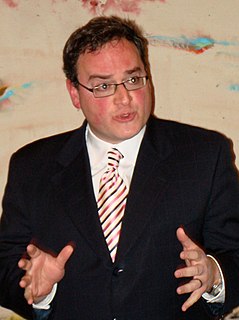A Quote by Sendhil Mullainathan
It is safe to say that when people are short on cash, they might be less productive at work, be worse parents, and have less self-control.
Related Quotes
Typically, people who exercise start eating better and becoming more productive at work. They smoke less and show more patience with colleagues and family. They use their credit cards less frequently and say they feel less stressed. It's not completely clear why. But for many people, exercise is a keystone habit that triggers widespread change.
The big problem is just this kind of gigantic piece, of kids reading less and liking it less and so getting worse at it. It's kind of this terrible spiral: Since they're not so good at it they do less of it, get worse at it, do less of it. And it's really what I discovered five, six years ago when I started the 'Guys Read' thing.
How I feel about and behave toward myself is the basic determinant of most of my behavior. If I improve my self-regard, I will find that dozens of behaviors change automatically. If, for example, I increase my feelings of self-competence, I will probably be less defensive, less angered by criticism, less devastated if I do not get a raise, less anxious when I come to work, better able to make decisions, and more able to appreciate and praise other people.
Where people work longest and with least leisure, they buy the fewest goods. No towns were so poor as those of England where the people, from children up, worked fifteen and sixteen hours a day. They were poor because these overworked people soon wore out -- they became less and less valuable as workers. Therefore, they earned less and less and could buy less and less.
For me, writing music is a good way to say what's on my mind. It's less vulnerable in a way, less embarrassing, less exposing to the idea of seeing someone's reaction. The thing about it, though, is you need to be ready... especially if you've got something you're burning to say... even if it's just what some people might think is just a small moment that nobody'd ever bother with or notice.


































